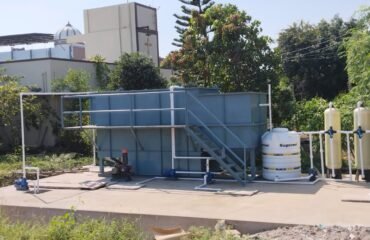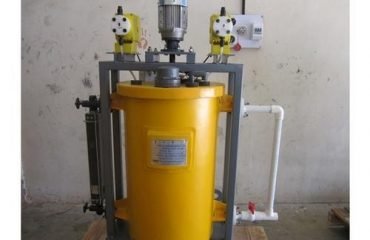Pioneering Sustainable Solutions
Ahmedabad, a city known for its rich cultural heritage and rapid industrial growth, is also home to a growing concern – the need for effective wastewater treatment. With industries expanding and urban areas growing, the demand for efficient Effluent Treatment Plants (ETP), Sewage Treatment Plants (STP), and Wastewater Treatment Plants in Ahmedabad has become more critical than ever. In this article, we will explore the significance of these treatment plants and how they are shaping a more sustainable future for the city.
The Vital Role of Effluent Treatment Plants (ETP)
Managing Industrial Wastewater
Effluent Treatment Plants, often referred to as ETP, are an integral part of Ahmedabad’s industrial landscape. They are responsible for treating and purifying wastewater generated by industrial processes. This includes various sectors like manufacturing, textiles, chemicals, and more.
Pollution Control and Compliance
One of the primary roles of ETP is to control pollution. They ensure that the effluents released into the environment meet the regulatory standards set by local and national authorities. This is not only essential for environmental protection but also for industries to avoid legal consequences.
Water Reuse and Resource Conservation
ETPs are designed to treat wastewater to a level where it can be safely discharged or even reused within industries. This not only reduces the environmental footprint but also conserves water resources in a water-scarce region like Ahmedabad.
The Significance of Sewage Treatment Plants (STP)
Tackling Urban Wastewater
With urbanization on the rise, sewage treatment has become a top priority. Sewage Treatment Plants, or STPs, are crucial for treating the wastewater from residential and commercial areas, ensuring that the water returned to the environment is safe and free from contaminants.
Preventing Waterborne Diseases
STPs play a vital role in safeguarding public health. Proper sewage treatment prevents the spread of waterborne diseases and ensures that the water bodies in and around Ahmedabad remain safe for recreational and agricultural purposes.
Sustainable Growth
The presence of functional STP is an essential aspect of urban planning. It ensures that the city can grow sustainably without compromising the environment or the health of its citizens.
Wastewater Treatment Plants: A Holistic Approach
Comprehensive Wastewater Solutions
Wastewater Treatment Plants encompass both ETP and STP, providing a holistic approach to wastewater management. These facilities cater to the diverse wastewater sources in Ahmedabad, addressing both industrial and urban needs.
Environmental Responsibility
A city’s commitment to environmental responsibility is often judged by the efficiency of its wastewater treatment plants. A well-designed Wastewater Treatment Plant is a testament to a city’s dedication to sustainability.
Creating a Sustainable Future
By effectively treating and managing wastewater, Ahmedabad is not only securing its present but also building a sustainable future. The treated water can be used for irrigation, industrial processes, and even replenishing groundwater.
The Way Forward
As Ahmedabad continues to grow and evolve, the demand for efficient wastewater treatment solutions will only increase. The concerted efforts of both public and private sectors are essential in meeting these demands and ensuring a cleaner, healthier, and more sustainable future for the city.
Conclusion
Effluent Treatment Plants, Sewage Treatment Plants, and Wastewater Treatment Plants in Ahmedabad are the unsung heroes working behind the scenes to protect the environment and public health. Their role in ensuring compliance with environmental regulations, reducing pollution, and conserving water resources cannot be overstated. These facilities are not just a reflection of a city’s commitment to sustainability; they are the driving force behind it. With their continued dedication, Ahmedabad is poised to meet the challenges of urbanization and industrial growth while safeguarding its environment and resources for generations to come.





